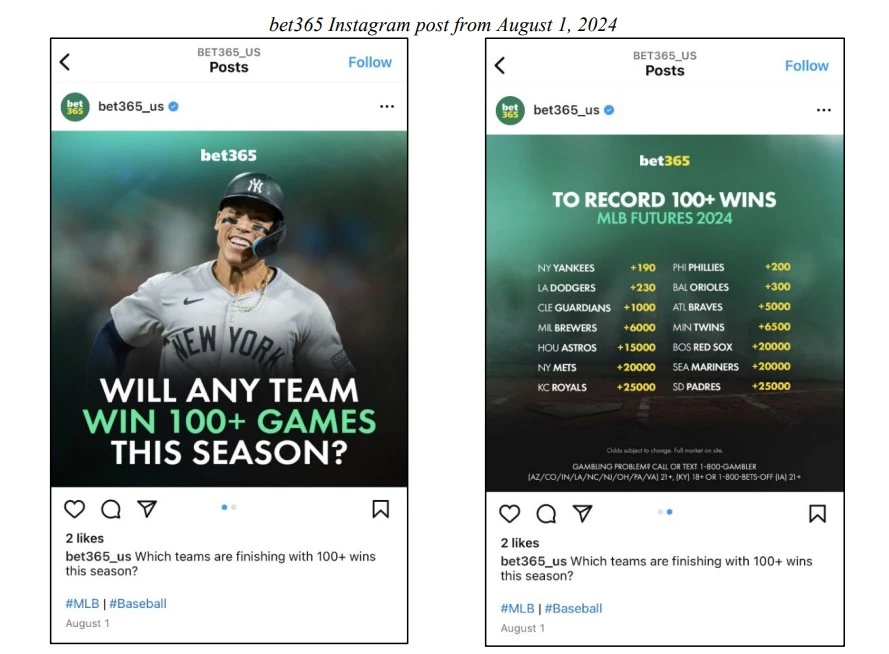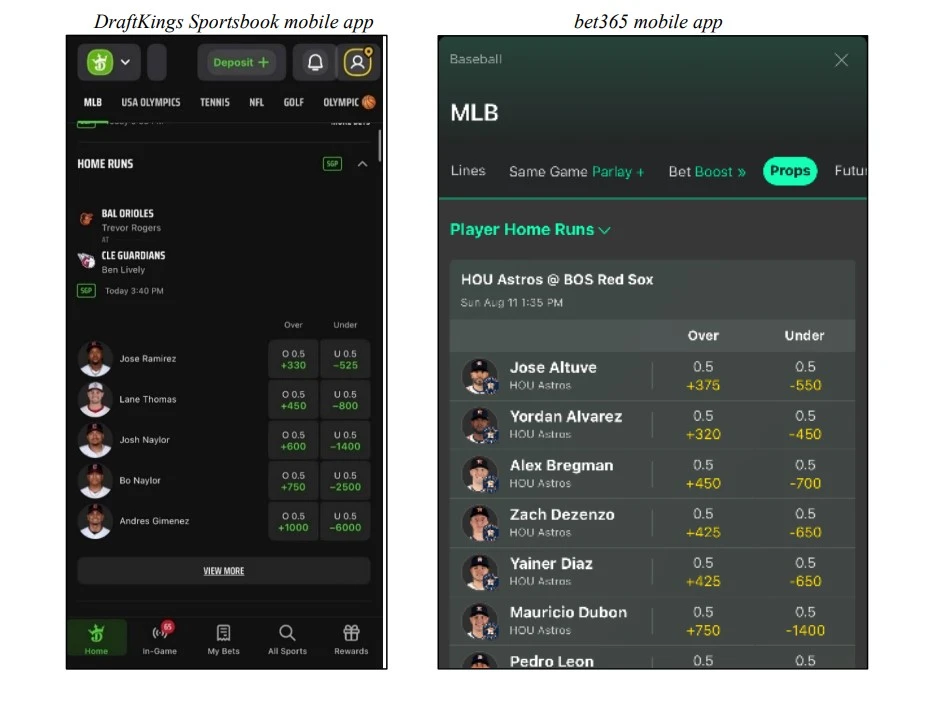MLB Players Inc (MLBPI), the corporate arm of the Major League Baseball Players Association (MLBPA) has filed lawsuits against DraftKings, Bet365, FanDuel and Underdog Fantasy for unlawfully using the name, image and likeness of several players on their apps and social media accounts.
The suits were filed on Monday (16 September). The DraftKings-Bet365 suit was filed in the US District Court for the Eastern District of Pennsylvania and the FanDuel-Underdog suit was filed in the New York State Supreme Court in Manhattan. Both allege that the bookmakers have used “hundreds” of MLB players’ names and images without proper consent.
The alleged violations apply to bets and promotions on the bookmakers’ apps and posts from their social media accounts. The union described the two companies’ conduct as “outrageous, malicious, and in wilful violation of MLBPI’s rights”.
As a result, the union is seeking an injunction to stop the use of player images as well as compensatory and punitive damages. It is also seeking “an accounting and disgorgement of all profits associated” with the use of its players.
Neither DraftKings nor Bet365 are based in Pennsylvania but both operate digital sports betting platforms in the state. Both FanDuel and Underdog are based in New York and operate in the state. None of the companies have commented publicly or responded to the suits.
Suit points out discrepancy between MLB, NFL
One of the main themes highlighted by MLBPI in its federal lawsuit is how the companies treat the MLB versus the NFL. For MLB bets, especially player-specific prop bets, the bookmakers “feature the image of almost every current MLB player” as well as team logos.
Comparatively, the bookmakers do not use NFL player images for their NFL prop bets. For DraftKings specifically, the MLBPI noted that it has individual MLB player profiles with statistics and other information. These also feature player images, whereas their NFL counterparts do not.
“These featured players’ images are intended to entice users of the platform to click on their tiles, which then takes the users to a page of prop bets pertaining to that player,” the suit reads. “For comparison, NFL player images are not featured in both team “rosters” and on the “team odds”
tabs on various parts of the DraftKings Sportsbook app.”
The union asserted that these profiles are designed to entice betting. As such, “the images are used for promotional rather than informational purposes” and require consent from the league.
Social media posts also under fire
The suit also asserts that the companies’ social-media posts involving players are a violation of licensing rights. Instead of informative posts, the union argues that these are also commercial in nature.
“DraftKings’ social media posts feature action shots of MLB players mid-game, often in multi-slide posts that begin with what appears to be a piece of sports reporting yet concludes with an advertisement encouraging viewers of the ad to place a bet on the DraftKings Sportsbook platform,” the suit reads.
With regards to Bet365, the suit also takes issue with its posts that feature players and prospective bets.

“This usage of player images on the platform and the use of player names and images in advertisements for the platform is intended to capitalise on those players’ celebrity and/or notoriety and use it to promote and drive business into the DraftKings Sportsbook and Bet365 platforms, despite the fact that MLBPI has not granted defendants a licence,” the union asserts.
The inclusion of social media posts is noteworthy. Earlier this month, researchers at England’s University of Bristol analysed thousands of social media posts from US sports betting operators and concluded that 74% of them violated the advertising code set forth by the American Gaming Association (AGA).
In response, the AGA defended operators’ freedom to post on social media without it being construed as advertising.
“To describe the sharing of sports facts, schedules or discussion topics via tweets and posts on social media platforms as advertising and thus applicable to our code is an irresponsible misinterpretation,” Joe Maloney, AGA’s senior vice-president for strategic communications, said in a statement.



